Author: Hilary
“The Last Train to Zona Verde” by Paul Theroux
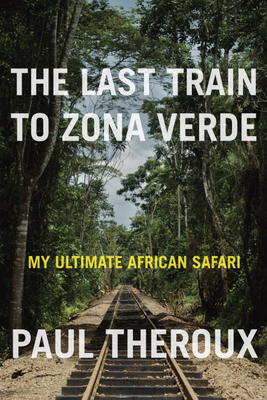 This is not your usual awe-inspiring account by a famous travel writer. Paul Theroux has made his last trip to the continent he loves best. In The Last Train to Zona Verde he tells us candidly why he won’t be returning to the zona verde – i.e. African bush – and it makes for fascinating if upsetting reading.
This is not your usual awe-inspiring account by a famous travel writer. Paul Theroux has made his last trip to the continent he loves best. In The Last Train to Zona Verde he tells us candidly why he won’t be returning to the zona verde – i.e. African bush – and it makes for fascinating if upsetting reading.
The American-born Theroux went first to Africa 20 years ago as a Peace Corps volunteer, and has returned may times to “the kingdom of light.” In this book, 50 years later, he explores the little-traveled territory of Western Africa, heading North from Capetown, through S. Africa and Namibia and on into Angola. Here he is shocked by a new Africa where country people are squeezed into cities which are nothing but slums of slapped-together mud and thatch, no running water, heat, poverty, mobs and anarchy. Though rich in oil, diamonds and gold, these centres do not share the wealth; in fact they rob their own people.
Theroux does include a chapter (Riding an Elephant: the Ultimate Safari) which describes a dazzling safari, Abu Camp, where guests interact with the resident herd of elephants, whether riding or walking with them through the bush, in private reserve or 400 000 acres of total luxury. Theroux also does a bit of teaching at schools sponsored by overseas aid. But as his trip proceeds he gradually gives up on his hopes for the continent he loves. His conclusions are unsparing and he shares them with considerable honesty.
Review by Anne McDougall
Book Club September-November 2013
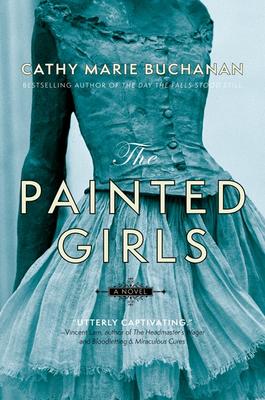 We are pleased to announce that our book club has become so popular that, starting in September 2013, there will be TWO Monthly Book Club Sessions!
We are pleased to announce that our book club has become so popular that, starting in September 2013, there will be TWO Monthly Book Club Sessions!
Session 1: New Members ONLY***
Date: Second Wednesday of month
Time: 7:30pm
Location: New Edinburgh Square
35 Beechwood Avenue
2nd Floor Lounge
Session Leader: Antoinette Fracassi
Schedule: September 11 – The Painted Girls
October 9 – The Inconvenient Indian
November 13 – Message to the
Emperor
Session 2: Returning Members
Date: Last Wednesday of month
Time: 7:30pm
Location: The Edinburgh Retirement Residence
10 Vaughan Street
Penthouse
Session Leader: Jill Moll
Schedule: September 25 – The Painted Girls
October 30 – The Inconvenient
Indian
November 27 – Message to the
Emperor
***Once the two sessions are up and running, members of both groups can
select whichever session is most convenient for them***
For more information: call 613-742-5030 or e-mail staff@booksonbeechwood.ca
Introducing…Books ‘n Brew!
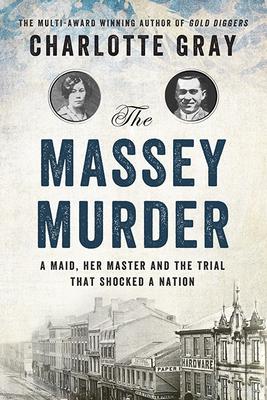 Books on Beechwood and the Mackay Clocktower Brew Pub Announce…Books ‘n Brew!
Books on Beechwood and the Mackay Clocktower Brew Pub Announce…Books ‘n Brew!
Starting in September 2013, in conjunction with the Clocktower, we will be holding a number of literary evenings.
Each evening will begin at 6:00pm with dinner at the pub, which will be followed by the author’s presentation, a Q&A session, and a book signing.
Books ‘n Brew Schedule:
September 30: Charlotte Gray presents The Massey Murder
October 28: Nathan Greenfield presents The Forgotten
November 11: Don Newman presents Welcome to the Broadcast
November 25: Mary Lawson presents Road Ends
December 1: Denise Chong presents Lives of the Family
December 15: Robert Sibley presents The Way of the 88 Temples
Attendance includes 15% off the featured author’s book and 15% off the cost of your meal if accompanied by one of the Clocktower’s famous custom brews.
Reservations necessary. Please book your table with the Clocktower at 613-742-3169.
“The Great Degeneration” by Niall Ferguson
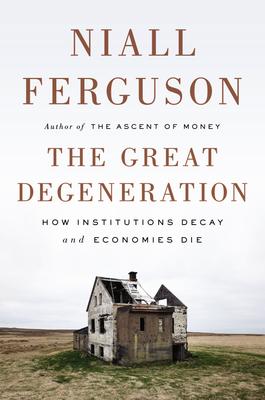 Niall Ferguson is the Scottish professor who teaches at Harvard, Oxford, and Stanford Universities and writes brilliant books on history and economics.
Niall Ferguson is the Scottish professor who teaches at Harvard, Oxford, and Stanford Universities and writes brilliant books on history and economics.
His latest started as a series of lectures for the BBC. It has turned into a searching and provocative book that examines the widespread rot that he claims is threatening our western institutions.
Ferguson looks at four aspects of Western life that he labels democracy, capitalism, rule of law, and civil society. He shows how these institutions in themselves have created great periods in the past. Today, a combination of greed and laziness is causing them to break down. He goes back to the British author Walter Bagehot who, in 1873, noted that: “The peculiar essence of our financial system is an unprecedented trust between man and man; and when that trust is much weakened by hidden causes, a small accident may greatly hurt it, and a great accident for a moment may almost destroy it.”
Ferguson notes that the rule of lawyers has often overtaken the rule of law. Taking education as an example, he shows how over the past 50 years, governments have encroached too far on the realm of civil society. To prevent squandering the breakdown of our institutions, he concludes, will take heroic leadership and radical reform.
Review by Anne McDougall
Labour Day Weekend Hours
We will be closed on Monday, September 2nd for Labour Day.
Regular store hours will resume on Tuesday, September 3rd.
Have a wonderful long weekend!
“The Magic of Saida” by M.G. Vassanji
 His name was Kamal Punja – half Indian, half African. He was born in a town south of Dar es Salaam, in Tanzania on the east coast of Africa. His father, the Indian, deserted him as a baby to return to India. His mother brought him up with a close friend who had a daughter called Saida. Kamal and Saida became close and lasting friends, in fact he loved her all his life.
His name was Kamal Punja – half Indian, half African. He was born in a town south of Dar es Salaam, in Tanzania on the east coast of Africa. His father, the Indian, deserted him as a baby to return to India. His mother brought him up with a close friend who had a daughter called Saida. Kamal and Saida became close and lasting friends, in fact he loved her all his life.
The book gives a good look at many aspects of African life: the changes when the Germans colonized the country; the magic and mystique of Saida’s grandfather, a famous poet. Kamal turned out to be a clever student who went to Makerere University and became a doctor. By this time he had a girlfriend who urged him to accept a position in Canada. They both settled in Edmonton where he was highly successful in medicine, and had two children.
The Magic of Saida tells the story of what was missing. He returns to Africa in search of Saida, and early love and memories. The result is tumultuous. With our world turning all colours, in all places, Vassanji gives a riveting picture of what the chopping and changing feels like. He is an Indian himself who now lives in Toronto. He has written six novels, which have won the Giller Prize twice as well as a series of other prizes.
Review by Anne McDougall
“Volcano Rising: An Ambassador’s Diary” by John Kneale
This is a concise, well-written account of what it was like to be Canadian Ambassador to Ecuador during three of its most turbulent years.
John G. Kneale served in that country from 1998-2001, and kept a daily diary. With him were his wife and two teenaged daughters. The title refers to the volcano that was a constant threat and exploded literally above their heads in 1999. It also refers to the wave of discontent that is rising among the marginalized Indian populations.
Like other countries in the region, Ecuador’s economic progress is hobbled by political instability. While he was there, a democratically-elected president was deposed by the army. Seven Canadian oil workers were kidnapped and held for ransom in the jungle. Kneale points out that there is little pressure on our political leaders to deploy our resources to build a safer, more prosperous New World.
He also tells of the beauty of the country, and describes the Andes, the Amazon and the magnificent Galapagos Islands. It is altogether an excellent read, combining a picture of Ecuador with an up-close description of an ambassador’s life and challenges.
Review by Anne McDougall
“Last Friends” by Jane Gardam
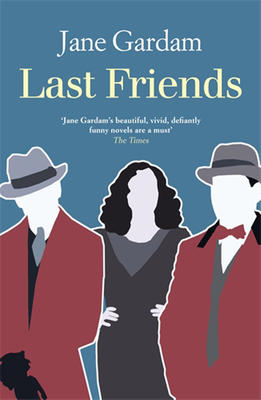 This is the third in Jane Gardam’s trilogy on the personnel of the Hong Kong law courts when they were dominated by the British. Like the others, it is full of far-out snobbery from that long-lost British Empire. But it also has a lot of humour.
This is the third in Jane Gardam’s trilogy on the personnel of the Hong Kong law courts when they were dominated by the British. Like the others, it is full of far-out snobbery from that long-lost British Empire. But it also has a lot of humour.
This book tells the story of Terence Veneering, who ended up working in law with Sir Edward Feathers (Old Filth, i.e. Failed In London Try Hong Kong) in the Malay States, as they were called. His background was wildly un-British, being the son of a Russian acrobat who had an accident while performing in England and was marooned in the northeast part of the country where he married an English girl. The blond son, Terry Venitski, proved to be a brilliant scholar who entered law, changed his name and was assigned to Hong Kong.
This book takes these two, plus Old Filth’s wife Betty, through the loves and jealousies of their working years and finally back to England where the two men ended up living in the same village. A lot of jealousies were resolved and they were friends, and home, at last.
Jane Gardam is one of England’s most distinguished novelists with a stream of prizes to her name. Her intelligence, plus black humour, are a joy to read.
Review by Anne McDougall
“Trains and Lovers” by Alexander McCall Smith
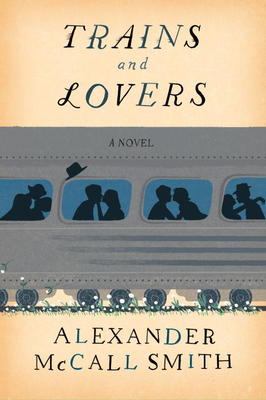 Trains have always had a romance about them, and Alexander McCall Smith explores it in his latest book.
Trains have always had a romance about them, and Alexander McCall Smith explores it in his latest book.
We have come to love McCall Smith for the characters he has created in his beloved series, i.e.: the No. 1 Ladies Detective Agency, the Isabel Dalhousie series, the Portuguese Irregular Verbs, the 44 Scotland Street series and the Corduroy Mansions series.
This may be different as one of a kind, or it may start a new series. Who knows? At any rate, it’s the story of four passengers on the Edinburgh-London train: three men and one woman. McCall Smith quotes Auden’s Night Mail to show the poetic swing of a train: “This is the Night Mail crossing the border/ Bringing the cheque and the postal order.”
Sure enough, as the train winds down the North Sea and then dips inland, each of the passengers tells bits of his or her life through incidents of a love affair. The men are Scots, English and American; the woman came from Perth, Australia. As they rock down to London, McCall Smith shows how the train brings out that part of us that outweighs any other – our need for love – to give it and to receive it in that familiar battle that all of us fight with loneliness.
“The Scotsman” calls Trains and Lovers the best thing McCall Smith has written so far.
Review by Anne McDougall
